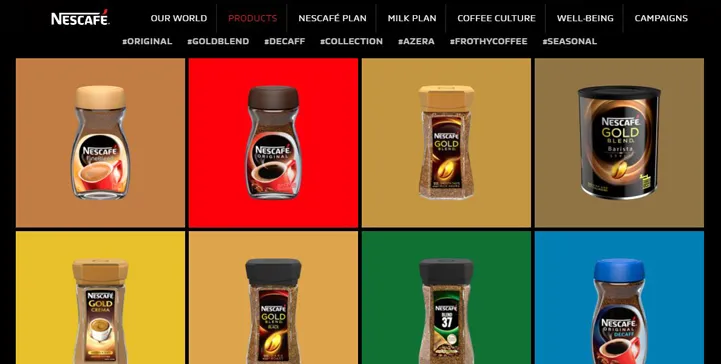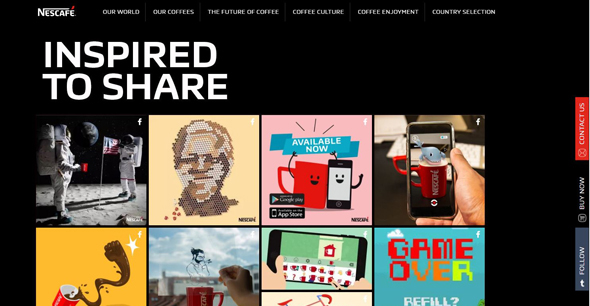


Nescafe's switch from website to Tumblr might not work
Should brands follow Nescafe's lead and swap their traditional website for Tumblr?

In case you missed it, earlier this year Nescafé dumped their traditional website for Tumblr. Six months down the line and the coffee kings are crediting the move with a rise in sales and that most modern of metrics – engagement.

With monthly visits rising by 29% - and users lingering on the Tumblr sites longer – as well as generating an extra $200,000 in sales, you could deduce from this that a Tumblr site is all you need.
Well, we would be a bit cautious about jumping to digital marketing conclusions for marketing brands. After all, only a few years ago experts were predicting that companies would be ditching their regular websites as “Eventually, all companies will only have a Facebook page”.
Having said that, there are certain brands for whom this sort of strategy makes sense.
You have to start by asking yourself – what would someone’s motive be for visiting a major food brand’s website? Did you ever visit Nescafé’s website? Why would you?
However, Social Media has made it quite normal to be exposed to a simple message or intriguing image, and made targeting those that may care much easier. As such, if you can lead on social, why not make the whole experience social? If engagement is the name of the game today, it is much easier to engage your targets – along with all their friends and associates - on these platforms than with a conventional website.
And if you want to sell online, why not talk them into a purchase while you have their attention? Especially if that can be done quickly and seamlessly? In the grand scheme of things, we suspect Nescafe will never sell a large proportion of its coffee online, but the more that it does, the more it gets its brand and products into people’s hands to sample.
In fact, it wouldn’t be too difficult to come up with a simple list of conditions in which this is the right strategy:
- Big global FMCG brand?
- Need for dozens of highly localised sites?
- An essentially ‘sociable’ product?
- An easy impulse purchase?
- Where the brand owner’s key objective is brand or product trial?
Check these boxes and Tumblr looks like a better bet than a website.
Just one other thing to remember though. As a lot of Facebook businesses found out the hard way: you don’t own the platform – someone else does. And if they want to make massive changes to the platform that makes your site unviable, you may have to be prepared to start over.
Posted 24 July 2016 by Chris Bullick